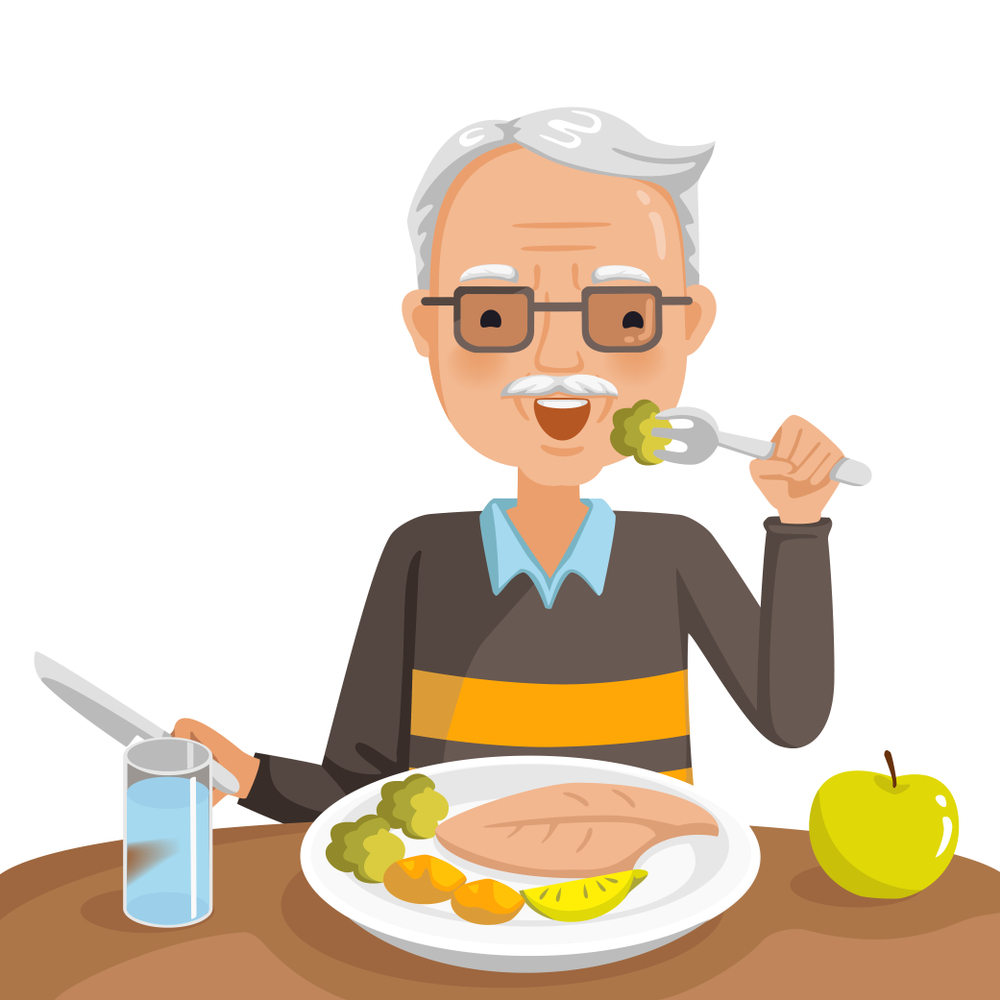According to the ‘National Policy on Older Persons’ ‘elderly’ is defined as those people aged 60 years or above. Elderly people face many issues in their life and here the nutritional requirements for the elderly are discussed.
Various factors such as physical, social, physiological, and economical may lead to reduced food intake among them. This results in the deficiency of nutrients which indirectly leads to poor health status as well as susceptibility to frequent infections affecting the quality of life. On the other hand, due to urbanization leads to increased income resulting in the consumption of processed foods. Along with that, a sedentary lifestyle, as well as genetics, adds to overnutrition or obesity and other non-communicable diseases.
Common challenges faced by the elderly and their solutions
Proper care, medication, a balanced diet and an active lifestyle would lead to healthy ageing.
Nutrients required for elderly
From whole grains such as rice, wheat millets and oats. Besides providing energy, it also contains Fiber essential for proper bowel movements, managing diabetes, cholesterol, hypertension as well overweight.
Whole grams, pulses, and dals can be used. In the case of non-vegetarians, fish, lean meat and eggs can be given. Paneer, Soy, etc also serves us as an excellent source of protein
Especially omega -3 fats prevent the onset of age-related symptoms in rheumatoid arthritis and age-related macular degeneration. Such as nuts and seeds can be used. Fat of 0.6 kg/ g body weight can be used daily.
Fats-soluble vitamins such as A, D, E, and K, as well as water-soluble vitamins such as B complex and C, are essential for healthy ageing. These nutrients must be supplemented through food as well as supplements in case there is a deficiency.
Calcium and phosphorus are required for the health of bones, and iron prevents anaemia. Magnesium, and manganese, are also required for normal functioning of the body.
Certain medications may lead to dehydration. Hence make a habit of adequate water intake.
Tips for planning diets of elderly
- Opt for seasonal fruits and vegetables
- Try simple cooking recipes
- Use equipment like an oven/food processor to simplify cooking
- Discuss with nutritionist/ dietitian/physician and plan diets based on that
- Take soups or boiled vegetables instead of raw salads as it is easy to consume
- Ensure the nutritional requirements are met
- Consume supplements if required
- Stay hydrated with water
- Take foods on a controlled portion
Avoid the following while planning diets for elderly
- Deep-fried foods such as chips, namkeens
- Sugary foods, pastries, cookies
- Salted foods, Pickles, papads cured fish/meat
- Refined flours, pasta, noodles etc
- Sugary drinks, cola beverages
- Salted water drinks
- Excessive tea and coffee
Tips while purchasing foods for elderly
- Have a pre-planned list of foods to be purchased
- Check on nutrition labels in the packaged products and avoid very sugary, fat and salted products
- Purchase foods in the required quantity
- Take online facilities or other young family members for purchasing groceries
There should be handholding support for the elderly. Along with medicines, diet and lifestyle, a sense of being with the family will keep the elderly healthy and confident.
References
- Robinson S. M. (2018). Improving nutrition to support healthy ageing: what are the opportunities for intervention?. The Proceedings of the Nutrition Society, 77 (3), 257–264. https://doi.org/10.1017/S0029665117004037 ****
- Govindaraju, T., Sahle, B. W., McCaffrey, T. A., McNeil, J. J., & Owen, A. J. (2018). Dietary Patterns and Quality of Life in Older Adults: A Systematic Review. Nutrients, 10 (8), 971. https://doi.org/10.3390/nu10080971 ****
